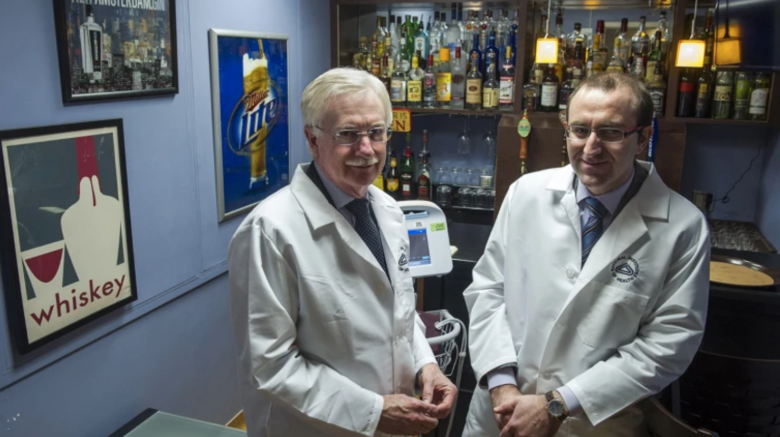Article from Nature.com
From alcoholism to Parkinson’s, scientists are studying the mechanisms behind the broad clinical potential of weight-loss drugs.
There’s a bar in Baltimore, Maryland, that very few people get to enter. It has a cocktail station, beer taps and shelves stacked with spirits. But only scientists or drug-trial volunteers ever visit, because this bar is actually a research laboratory. Here, in a small room at the US National Institutes of Health (NIH), scientists are harnessing the taproom ambience to study whether blockbuster anti-obesity drugs might also curb alcohol cravings.
Evidence is mounting that they could. Animal studies and analyses of electronic health records suggest that the latest wave of weight-loss drugs — known as glucagon-like peptide 1 (GLP-1) receptor agonists — cut many kinds of craving or addiction, from alcohol to tobacco use.
“We need randomized clinical trials as the next step,” says Lorenzo Leggio, an addiction researcher at the NIH in Baltimore. In the trial he is leading, volunteers sit at the bar and get to see, smell and hold their favorite drinks, while going through tests such as questions about their cravings; separately, participants will have their brains scanned while looking at pictures of alcohol. Some will be given the weight-loss drug semaglutide (marketed as Wegovy) and others will get a placebo.
Curbing addiction isn’t the only potential extra benefit of GLP-1 drugs. Other studies have suggested they can reduce the risk of death, strokes and heart attacks for people with cardiovascular disease or chronic kidney ailments, ease sleep apnoea symptoms and even slow the development of Parkinson’s disease. There are now hundreds of clinical trials testing the drugs for these conditions and others as varied as fatty liver disease, Alzheimer’s disease, cognitive dysfunction and HIV complications (see ‘Diseases that obesity drugs might treat’ at the end of this article).
“We’re in a phase where GLP-1-based drugs are being considered as potential cures for every condition under the Sun,” says Randy Seeley, an obesity specialist at the University of Michigan in Ann Arbor, who has consulted for and received research funding from several firms that develop obesity drugs.

